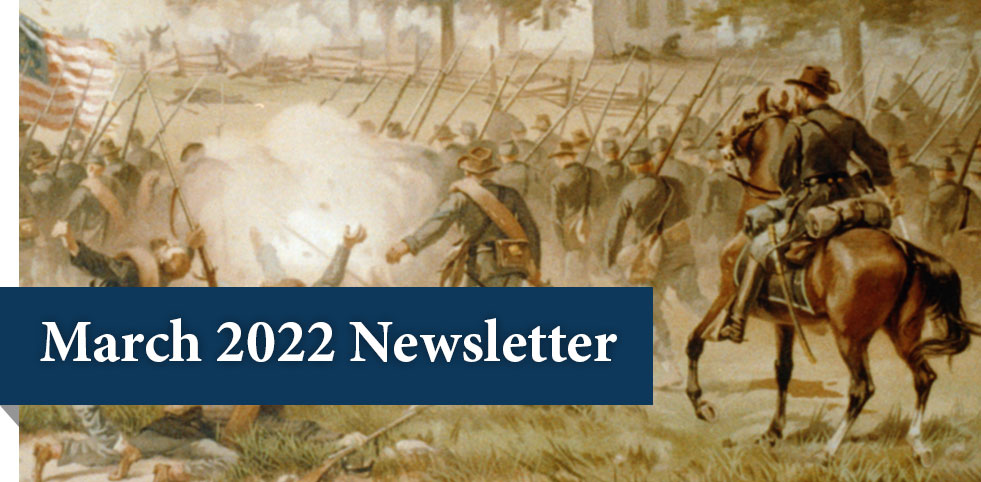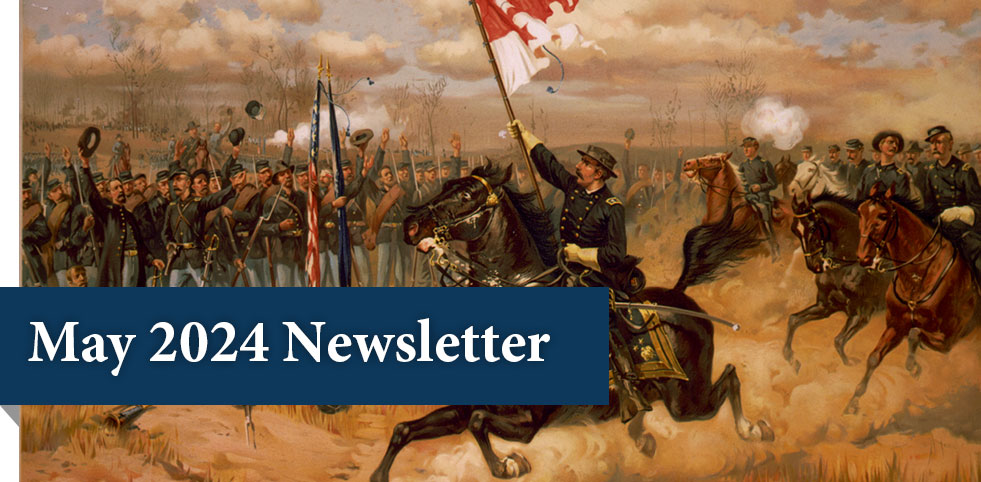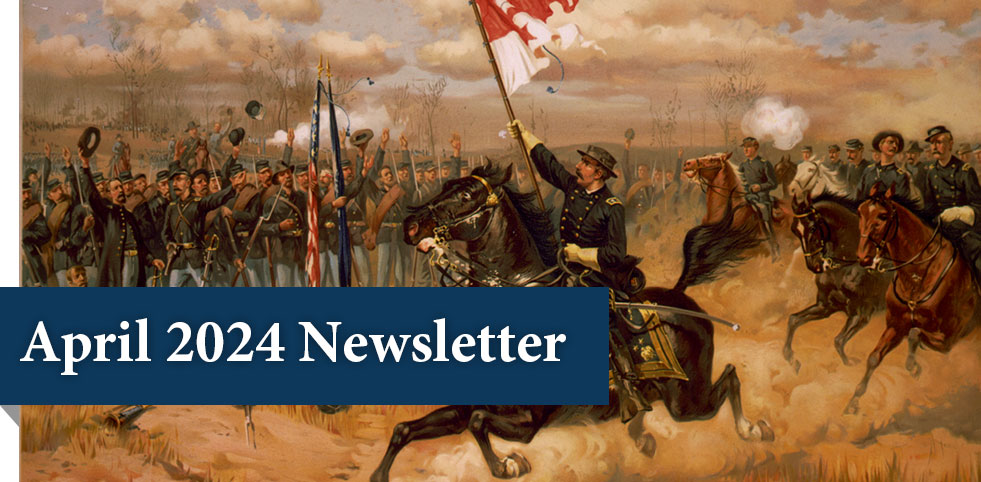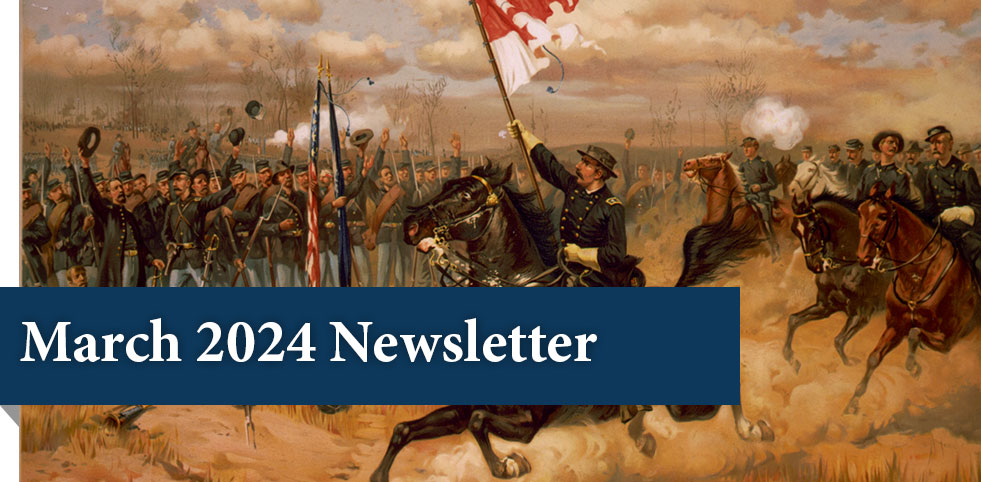Dr. Kenneth Noe – The Howling Storm: Weather, Climate, and the American Civil War
Dr. Kenneth Noe has become one of our most notable historians of the American /Civil War. A native of Montgomery County, Virginia, he is a graduate of Emory and Henry College. He earned master’s degrees in history at both Virginia Tech and the University of Kentucky and received his doctorate degree in history from the University of Illinois. After teaching at the University of West Georgia for ten years, Dr. Noe taught at Auburn University from 2000 to 2021.
Dr. Noe has received numerous teaching awards and is the author of eight books, including The Howling Storm: Weather, Climate, and the American Civil War, published by LSU Press in 2020, a finalist for the Lincoln Prize. Twice a Pulitzer Prize entrant, Dr. Noe received the 2002 Peter Seaborg Award for Civil War History for Perryville: This Grand Havoc of Battle, and the 1997 Tennessee History Book Award for A Southern Boy in Blue: The Memoirs of Marcus Woodcock, 9th Kentucky Infantry, U.S. He is currently reconsidering Abraham Lincoln’s success as commander-in-chief.
Shaker Village at Pleasant Hill During the Civil War
The United Society of Believers in Christ’s Second Coming, commonly known as the Shakers, arrived in Mercer County in 1806. They established Pleasant Hill which became the third largest Shaker community in the United States. Shakers are today remembered for their practices of celibacy, communal living, and pacifism, as well as their craftsmanship and iconic architecture.
Members joining the Pleasant Hill society came mostly from the region, and their attitudes likely reflected the range of views antebellum Kentuckians held on slavery. And although the sect had no formal position on the institution of slavery, their actions and writings indicate a distinct antislavery stance. Pleasant Hill often hired out slave labor from local owners to work in the fields, kitchens, and shops. The Shakers also purchased some slaves, but only to prevent their sale further south, and they were ultimately freed. Several converted, and one African American woman rose to the position of kitchen deaconess. They were allowed to vote and treated equally during worship, but apparently lived separately from white members.
The Civil War was difficult for Pleasant Hill, not only because it put their pacifist beliefs to the test, but because the war destroyed access to southern markets to which they sold numerous goods. In July 1862, the Shakers heard rumors that Confederate cavalry under John Hunt Morgan planned to attack the settlement. They hid their horses to prevent their capture, but when Morgan’s men arrived, they only requested to be fed. Four months later, the community served meals to both Confederate and Federal soldiers before and after the Battle of Perryville. The Shakers estimated they served between eight and nine thousand meals without charge or reimbursement.
The Civil War set in motion many forces that would lead to the community’s decline during the last half of the nineteenth century. The loss of markets and the unreimbursed feeding of troops depleted Pleasant Hill’s resources, and some Shaker men even left the sect to join the fighting. But more importantly, the changing social and cultural environment during Reconstruction and beyond made Shaker life less appealing, with very few converts joining in the latter half of the nineteenth century. By 1900, only 34 remained, and the Pleasant Hill Shaker community was dissolved in 1910.
Klotter, James C., and Craig Thompson Friend. A New History of Kentucky, Second Edition. Lexington: University Press of Kentucky, 2018, p. 131.
Ramage, James A., and Andrea S. Watkins. Kentucky Rising: Democracy, Slavery, and Culture from the Early Republic to the Civil War. Lexington: University Press of Kentucky/ Kentucky Historical Society, 2011, pp. 156-157.
Administrator’s Report
Hello, Members! As a reminder, ALL current member dues for 2022 must be paid by March 31, 2022. I sent out reminder invoices before the January meeting. If you haven’t paid, please do so before March 31st or your membership will be canceled.
Over the last two meetings, several members have contacted me about paying for their meals and the meeting schedule, so I thought I’d try to answer the most frequently asked questions. Here goes…
Frequently Asked Questions
Is it okay if I pay for my meal at the meeting?
No, this is no longer an option since we went back to in-person meetings. All payments must be paid prior to the meeting.
Payment can be made by check, credit card or on the website. I would really appreciate not having to contact members that last week before the meeting to remind them to pay.What time does the meeting start?
Here is our meeting timetable:
- Social Hour – 5:30
- Dinner – Service begins at 6:00
- Announcements – 6:45
- Speaker Presentation – 7:00
Are vegetarian meals an option?
Yes, just let me know your preference when you RSVP.
I hope I’ve been able to answer some of your questions. Take care and I look forward to seeing you at the March meeting.




